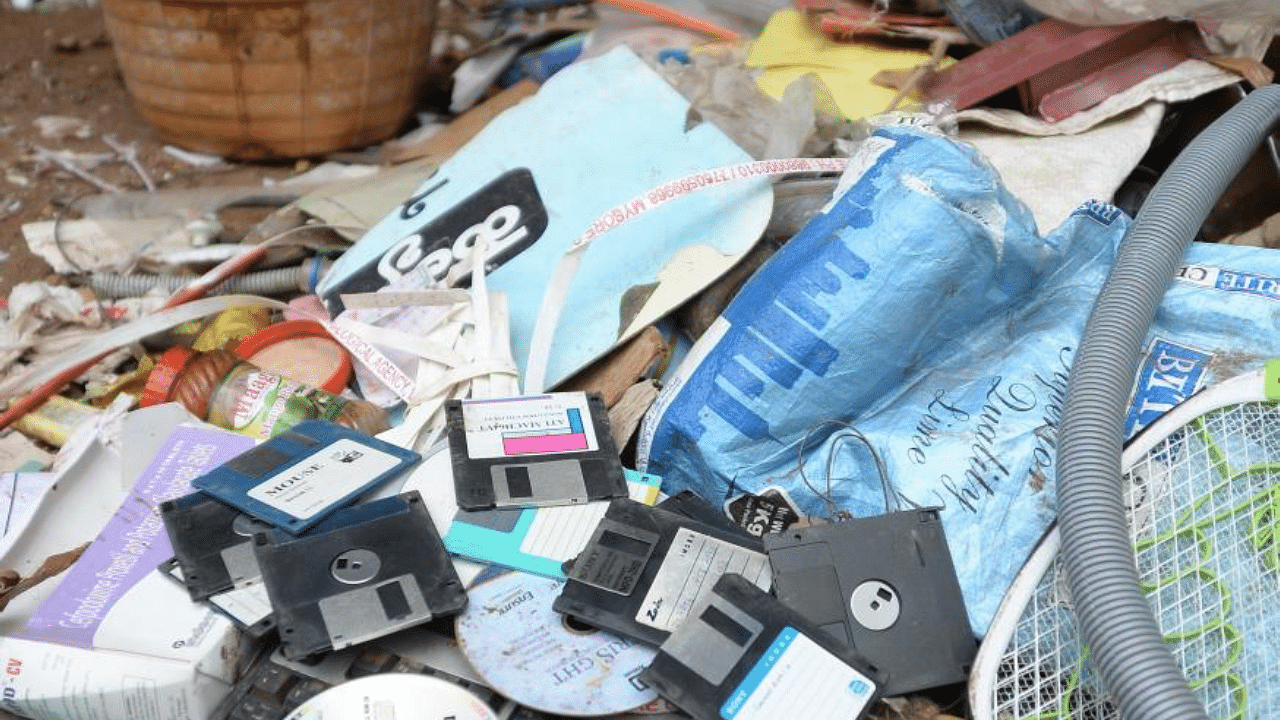
The quantum of e-waste being generated by the public has been growing in recent years, but Bengaluru's booming IT sector is exacerbating the problem and adding to the challenges of curbing environmental pollution, government and private entities involved in recycling efforts said.
According to the Karnataka State Pollution Control Board (KSPCB), about a thousand tonnes of e-waste on average originates solely from IT companies in Bengaluru monthly. However, only a minuscule portion of this comes into the possession of dismantlers authorised to carry out environmentally safe recycling.
Instead, a massive proportion of this e-waste is said to be going to a sprawling informal recycling sector that uses acids to extract precious metals and breaks down electronic equipment in haphazard, extractive methods. “The irresponsible handling of e-waste is a huge hazard to the environment and is toxic to the informal handlers. This is creating a time bomb waiting to tick,” said KSPCB member secretary Srinivasulu.
He pointed out that attempts to get the informal sector to adopt responsible recycling methods have not worked. “Even after 10 years of enforcement of e-waste rules, the share of the formal sector is just 10-15%, one reason being the lack of awareness about the hazardous impact of inappropriate e-waste recycling and consumers selling their e-waste to informal recyclers for quick money as it is easier and faster,” he said.
Shobha Raghavan, Chief Operating Officer (COO) of Saahas Zero Waste, a Producer Responsible Organization (PRO), which channels e-waste from the firms to recyclers, said that problem happens due to the auctioning of e-waste by IT companies. “The rule says the IT firms have to check if the bidders are authorized recyclers but what is happening is that the highest bidders are usually informal dismantlers,” she added.
One recycler who has tie-ups with several IT firms and has collection bins located in several city clubs concurred, stating that his firm collected eight tonnes of waste in the entirety of October. “Most of the e-waste coming in the bins are negative value items such as cables and batteries,” he said.
According to Vikram Mudgal, COO of PRO Karo Sambhav, there are two types of e-waste: products from the IT sector and general electronic waste which comprises consumables from the public such as household appliances which are seen as having recycling value. “At the end of the day, every business is a money-making activity but the informal sector is largely all about extraction of precious components and they do not care about the environment,” he said.
While the government said that factual data on the quantum of Electrical and Electronic Equipment (EEE) being put is unknown, it does have estimates for the amount of electronic waste being generated. “As per data, India was the third-largest generator of e-waste in 2019 with 3.2 million tonnes having been produced, and the country happens to be one of the fastest-growing markets for electronics in the world with demand having reached $400 billion by 2020,” Srinivasulu said.
Another problem is that the formal recycling sector does not have the capacity to handle these e-waste quantities. “One solution is to bring greater numbers of informal recyclers into the fold,” Raghavan said.
E-waste awareness drive
The KSPCB said it is initiating a one-month e-waste awareness drive across Karnataka from November 24. The board can be reached at their helpline number 08025582559 or the toll-free numbers 18002586676 and 18002121434 for pickup of e-waste.
Watch the latest DH Videos here: